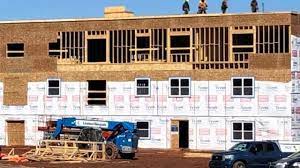The ban was initially implemented in 2022.
Finance Minister Chrystia Freeland declared in a statement on Sunday that the federal government is expanding its prohibition on foreign nationals buying real estate in Canada.
Originally announced in 2022, the rule will now be extended till the start of 2027. With certain exceptions for temporary employees, international students, and refugees, it prohibits foreign nationals and commercial entities from purchasing residential property in Canada.
“By extending the foreign buyer ban, we will ensure houses are used as homes for Canadian families to live in and do not become a speculative financial asset class,” Freeland said in a statement issued on Sunday.
Experts have questioned whether the ban is making housing more affordable in Canada, considering that non-Canadians hold a comparatively small portion of the country’s total property market. For instance, in 2020, non-residents held between two and six percent of the market in several provinces.
Will housing become more affordable as a result of Canada’s ban on foreign buyers? Some professionals are unsure.
Why the Canadian government’s prohibition on foreign purchasers hasn’t reduced the cost of homes
Just 1.1% of homes sold in British Columbia in 2021 had a foreign buyer.
The home buying regulations also have further exceptions that permit the acquisition of properties in some less populous areas or with four or more residences.
Late last year, CBC News was informed by Brendon Ogmundson, the head economist for the British Columbia Real Estate Association, that “the foreign buyer ban was more political than economic policy or housing policy.”







